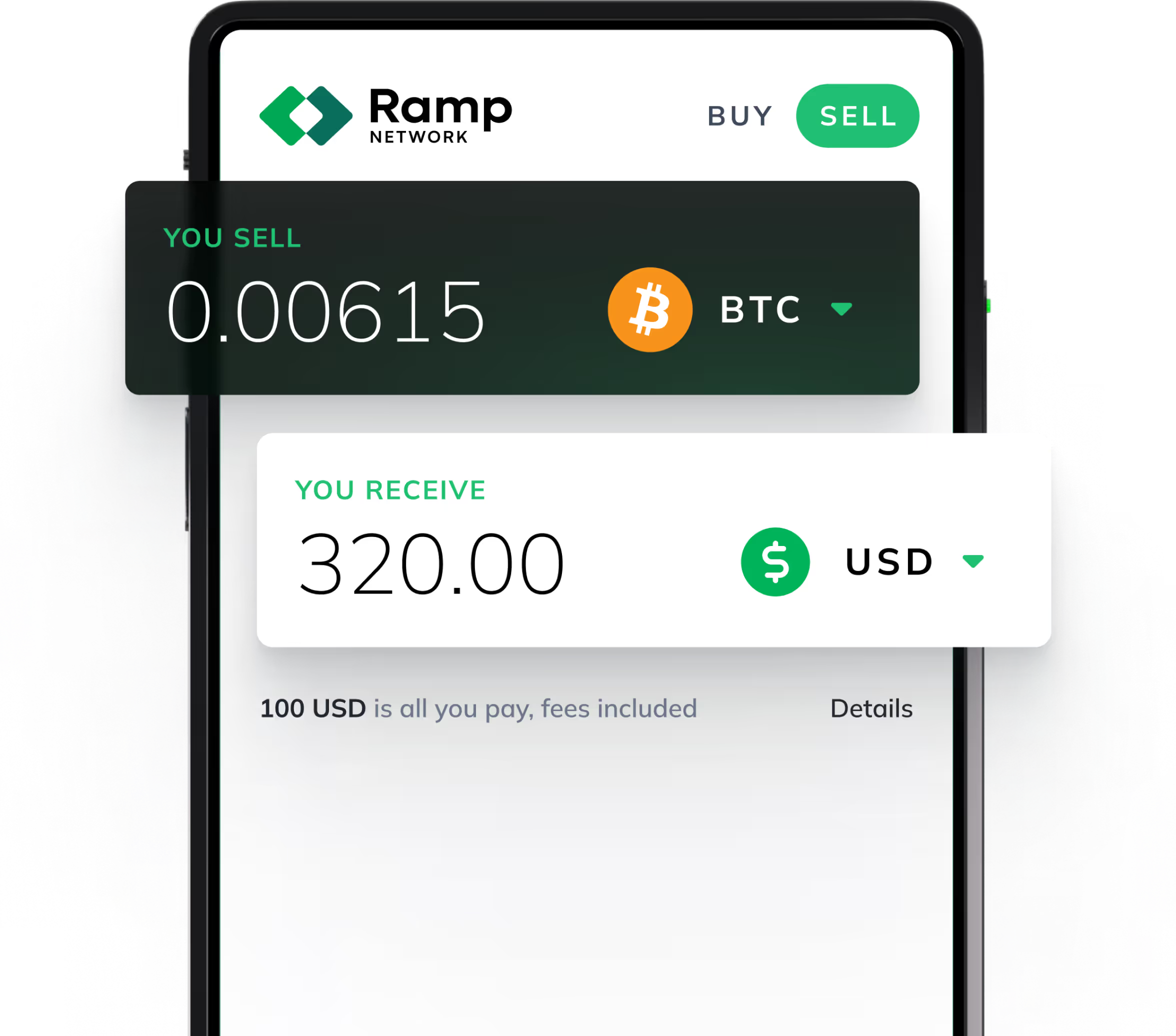

SPEI, or Sistema de Pagos Electrónicos Interbancarios, is a real-time payment system connected to all major Mexican banks, enabling fast and secure bank transfers in seconds. By integrating SPEI, Ramp Network provides Mexicans with a simple, convenient, and reliable way to sell crypto and instantly receive fiat currency in their bank accounts.
As one of the leading providers of fintech infrastructure in the crypto industry, Ramp Network's mission is to lower the barrier to entry to Web3 by making it easier for users to buy and sell cryptocurrencies needed to interact with decentralized applications. Available as a standalone app, Ramp Network also integrates with third-party dApps via a simple API, enabling their users to purchase crypto.
Mexico has emerged as one of the key markets for Ramp Network as it accelerates its expansion into the LATAM region, ranking 16th globally in the latest edition of Chainalysis' crypto adoption index. The country is also among the top 20 nations worldwide in terms of crypto transaction volume, and it's estimated that 14% of all Mexicans now own crypto. Studies show that 40% of Mexican companies are exploring ways they can integrate blockchain technologies into their business processes, underscoring the country's status as a major hub of crypto and fintech innovation.
Ramp Network is leading the charge in terms of crypto off-ramps, pioneering payouts in EUR, USD, and GBP globally. This year, it added support for payouts in more than 35 local currencies, including MXN. Building on that, Ramp Network now becomes the first major crypto off-ramp to support MXN payouts via SPEI bank transfers, providing Mexican crypto users with a seamless, cost-effective, and reliable crypto-to-fiat experience.
Szymon Sypniewicz, CEO of Ramp Network, commented: "We’re incredibly proud to enhance our support for Mexican users with the integration of SPEI. Now, people in Mexico can convert their crypto into fiat in seconds, with lower fees and reduced friction. This move builds on our mission to make crypto accessible everywhere, especially where it’s needed most. It also creates new opportunities for both local Web3 builders and our global partners looking to expand their footprint in Latin America."
SPEI provides key benefits over traditional payout methods, with a flat 2.9% fee charged on all transactions which is significantly lower than the fees charged by most MXN cards. By using SPEI, customers lower the risks of card-related issues such as rejected transactions and verification failures. Moreover, SPEI operates 24/7, 365 days a year, including holidays, making it a reliable and immediate payout method for MXN transactions.
Users can sell any supported cryptocurrency via SPEI in just a few clicks. To get started, users simply select the amount of crypto they want to sell, choose Mexico as their country, select MXN as the currency, and select SPEI as the payout method. After entering the sender's wallet address and sending the funds to Ramp Network's wallet, they'll receive MXN in their bank account via SPEI within 30 seconds or less.
For their first SPEI transaction, users will be required to enter their bank's CLABE (IBAN-equivalent) number, plus their full name and tax ID, which will then be saved for future transactions.
The expansion is a strategic move, in line with Ramp Network's mission to provide more convenient, localized services to Latin American crypto users. It's doing this by offering a reliable and cost-effective payment and payout methods. The company, which provides a similar experience for Brazilian users with PIX, is planning to build on this partnership in the near future by adding support for SPEI on-ramp transactions. That feature is set to launch in the coming weeks.
SPEI's rapid growth in the last year has made it one of the most popular payment systems in Mexico. In 2023, the network processed an average of 80.9 million payments per month, including a record 279.3 million transactions, or approximately 6,257 payments per minute, in March of that year. SPEI believes its network will continue to grow, and expects its number of transactions to more than double by 2027.














.png)
.jpg)


